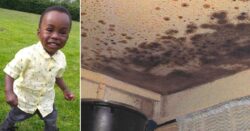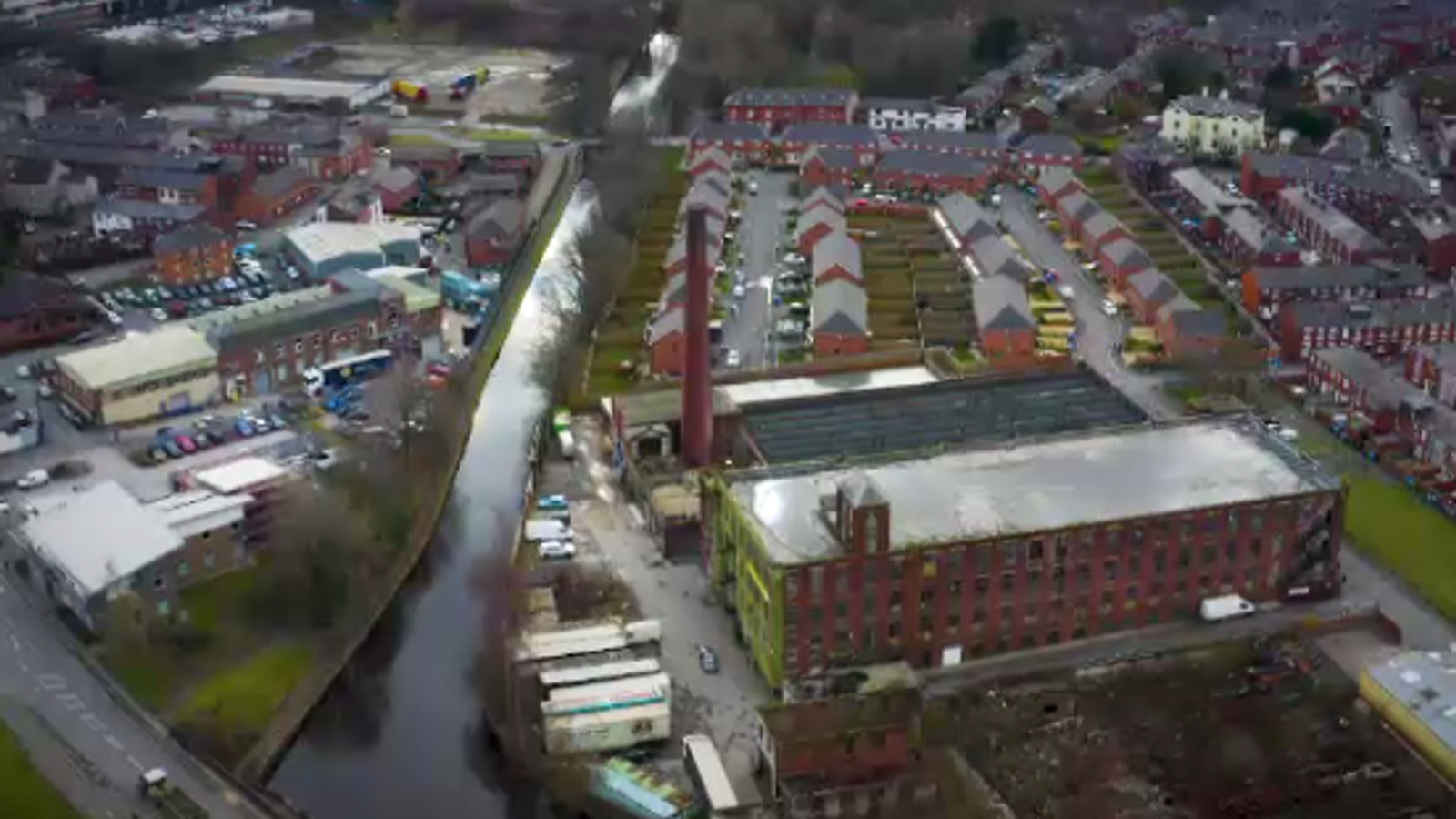The Government is introducing reforms in response to the death of Awaab Ishak (Pictures: MEN/PA)
Social housing managers will need to obtaian qualifications to avoid a repeat of tragedies like two-year-old Awaab Ishak’s death in a mouldy flat.
Housing Secretary Michael Gove has announced the changes after recognising that social housing residents were being ‘inexcusably let down’.
The Cabinet minister said the shift would ‘drive up standards’ across the board after the toddler’s death.
Awaab died in December 2020 from a respiratory condition caused by mould at his home in Rochdale, Greater Manchester.
Awaab Ishak died just over a week after his second birthday (Picture: MEN Media)
In response to his death, ministers have proposed that landlords will have to investigate and fix damp and mould in social housing within strict time limits under what would be known as Awaab’s Law.
On top of those reforms, Mr Gove on Sunday announced new rules that will mean around 25,000 managers across the sector will be required to have an appropriate level housing management qualification.
Managers must have a qualification that comes from a provider regulated by exams watchdog Ofqual and that is equivalent to a level 4 or 5 certificate or diploma in housing.
Alternatively, they can have a foundation degree from the Chartered Institute of Housing.
The changes will be made through amendments to the Social Housing (Regulation) Bill, according to the Department for Levelling Up, Housing and Communities.
This will put legal pressure on landlords to investigate and fix damp and mould in social housing within strict time limits.
The shocking mould within the family’s flat (Picture: MEN Media)
Any landlord who fails to meet these new rules risks being fined.
The social housing regulator will also have tough new powers, allowing it to enter properties with only 48 hours’ notice and make emergency repairs with landlords footing the bill.
Officials believe the new requirements will professionalise and drive the ‘culture change needed’ in the sector.
The Bill is the latest step in response to the 2017 Grenfell Tower fire, with the Fire Safety Act enacted and the Building Safety Act passed last year.
Mr Gove said: ‘The Grenfell Tower tragedy and, more recently, the death of Awaab Ishak showed the devastating consequences of residents inexcusably being let down by poor performing landlords who consistently failed to listen to them.
‘We know that many social housing residents are not receiving the service or respect they deserve.
‘The changes we are delivering today will make sure social housing managers across the country have the right skills and experience to deliver an excellent service and drive up standards across the board.’
To view this video please enable JavaScript, and consider upgrading to a web
browser that
supports HTML5
video
Chief executive of the Chartered Institute of Housing, Gavin Smart, said: ‘We believe housing professionals should do all they can to ensure that tenants and residents have access to good quality, affordable homes; that they are treated with dignity and respect; and that their voices and views are heard and taken account of in decisions that affect them.’
Grenfell United, a group of survivors and bereaved family members of the victims of the west London tower blaze that took 72 lives, said: ‘For six years we have worked relentlessly to hold the Government to account to change social housing for tenants across the country.
‘We never gave up. We pushed for professionalisation and for robust regulation to ensure residents are treated with respect and humanity.
‘Whilst there is a long way to go, we welcome the amendment. We believe this will play a part in the legacy of positive change and make a significant difference to social housing tenants.’
What happened to Awaab Ishak?
Two-year-old Awaab Ishak, died in December 2020 from a respiratory condition caused by mould in the one-bedroom flat where he lived with his parents in Rochdale.
His dad, Faisal Abdullah had previously complained to Rochdale Boroughwide Housing (RBH) about the mould.
When he first reported it in 2017, he was told to paint over it.
In June 2020, Mr Abdullah instructed solicitors and initiated a claim over the recurring issue but policy meant any repairs would not be done until an agreement had been reached, the inquest heard.
A health visitor also contacted RBH to raise the issue in July 2020 and an inspection found mould in the kitchen, bathroom and a bedroom cupboard, which all needed treatment.
Ms Kearsley said the mould was due to ‘normal daily living activities’ and a lack of effective ventilation.
She said: ‘I find as a matter of fact that no action was taken and, from July 2020 until December 2020, Awaab continued to have chronic exposure to harmful mould.’
Awaab was taken to Rochdale Urgent Care Centre on December 19 with shortness of breath and transferred to Royal Oldham Hospital before being discharged, the court heard.
The coroner said the family should have been told to call an ambulance or take him directly to Royal Oldham Hospital if he had further difficulties.
Awaab deteriorated the next day and his parents were advised by the Community Children’s Nursing Team to take him back to the Rochdale Urgent Care Centre.
He went into respiratory arrest and then cardiac arrest while being transferred to Oldham where he died.
Get in touch with our news team by emailing us at webnews@metro.co.uk.
For more stories like this, check our news page.
New laws will also put more pressure on landlords to investigate and fix damp and mould in social housing within strict time limits.





